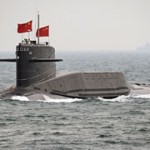– I’ve long thought that Britain has had a lot to own up to that it has largely been in denial of.  Things like selling salt from the sea to the Indians during Gandhi’s years of protest. Not that the U.S., with its Monroe Doctrine and its manipulation of Latin American events for its own benefit, hasn’t much of the same history and denial.  But Monbiot (one of my favorites authors) surely nails the paper to the church door here.  I think the average U.S. and British citizen, living blissfully within the cocoons of wealth created by these rapacious adventures, has very little idea how much of their comfort came at what cost to others.
– But, irony abounds.  Those who were disadvantaged by these manipulations; China with the Opium, Chile with the Copper and etc., are quick to point at their wounds and moralize.  But, inevitably, as the winds of history shift, they will come into ascendance and practice all the same self-aggrandizements at the expense of the weaker. Indeed, I find myself wondering frequently what sort of a world-master China is going to make - given the current trends.
– – – – – – – – – – – – – – – – – – – – – – – – – – – – –
Opium, famine and banks all played their part in this country’s plundering of the globe. Now it’s over, we find it hard to accept
Why now? It’s not as if this is the first time Britain’s representatives have been caught out. The history of governments in all countries is the history of scandal, as those who rise to the top are generally the most ambitious, ruthless and unscrupulous people politics can produce. Pushing their own interests to the limit, they teeter perennially on the brink of disgrace, except when they fly clean over the edge. So why does the current ballyhoo threaten to destroy not only the government but also our antediluvian political system?
The past 15 years have produced the cash-for-questions racket, the Hinduja and Ecclestone affairs, the lies and fabrications that led to the invasion of Iraq, the forced abandonment of the BAE corruption probe, the cash-for-honours caper and the cash-for-amendments scandal. By comparison to the outright subversion of the functions of government in some of these cases, the is small beer. Any one of them should have prompted the sweeping political reforms we are now debating. But they didn’t.
The expenses scandal, by contrast, could kill the Labour party. It might also force politicians of all parties to address our unjust voting system, the unelected Lords, the excessive power of the executive, the legalised blackmail used by the whips, and a score of further anachronisms and injustices. Why is it different?
I believe that the current political crisis has little to do with the expenses scandal, still less with Gordon Brown’s leadership. It arises because our economic system can no longer extract wealth from other nations. For the past 300 years, the revolutions and reforms experienced by almost all other developed countries have been averted in Britain by foreign remittances.
The social unrest that might have transformed our politics was instead outsourced to our colonies and unwilling trading partners. The rebellions in Ireland, India, China, the Caribbean, Egypt, South Africa, Malaya, Kenya, Iran and other places we subjugated were the price of political peace in Britain. After decolonisation, our plunder of other nations was sustained by the banks. Now, for the first time in three centuries, they can no longer deliver, and we must at last confront our problems.
There will probably never be a full account of the robbery this country organised, but there are a few snapshots. In his book Capitalism and Colonial Production, Hamza Alavi estimates that the resource flow from India to Britain between 1793 and 1803 was in the order of £2m a year, the equivalent of many billions today. The economic drain from India, he notes, “has not only been a major factor in India’s impoverishment … it has also been a very significant factor in the industrial revolution in Britain”. As Ralph Davis observes in The Industrial Revolution and British Overseas Trade, from the 1760s onwards India’s wealth “bought the national debt back from the Dutch and others … leaving Britain nearly free from overseas indebtedness when it came to face the great French wars from 1793”.
More, much more… ➡
– Research thanks to Robin S.


